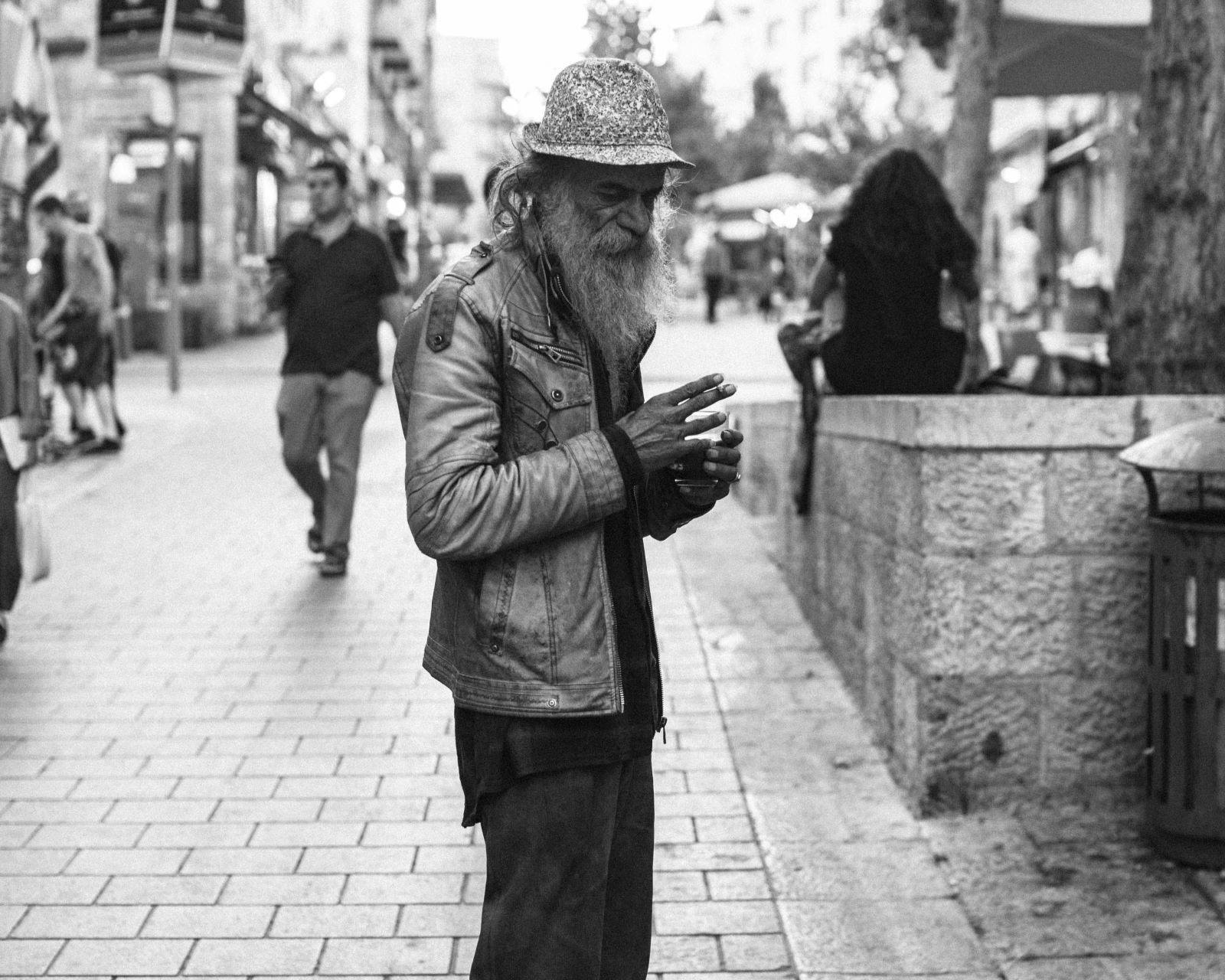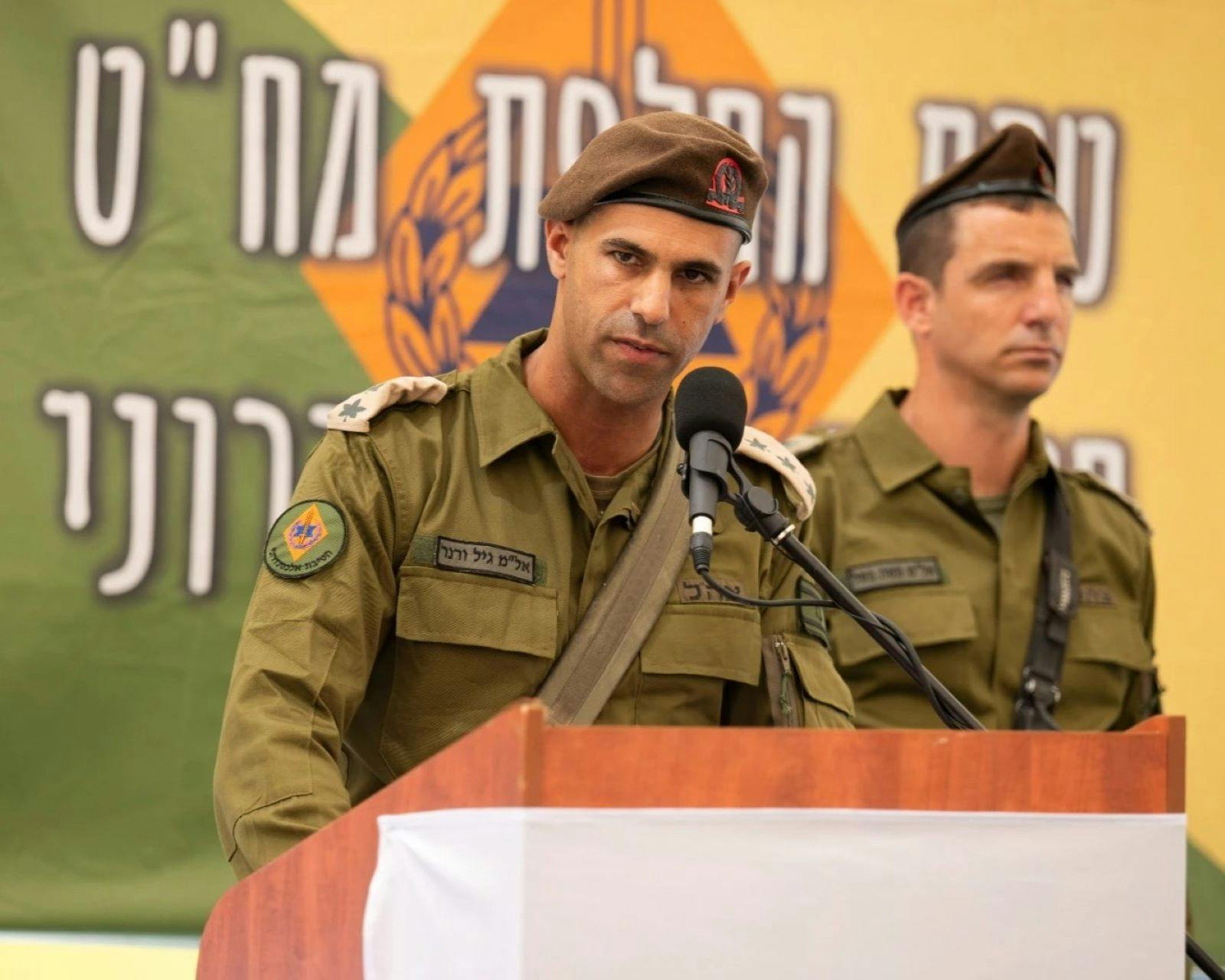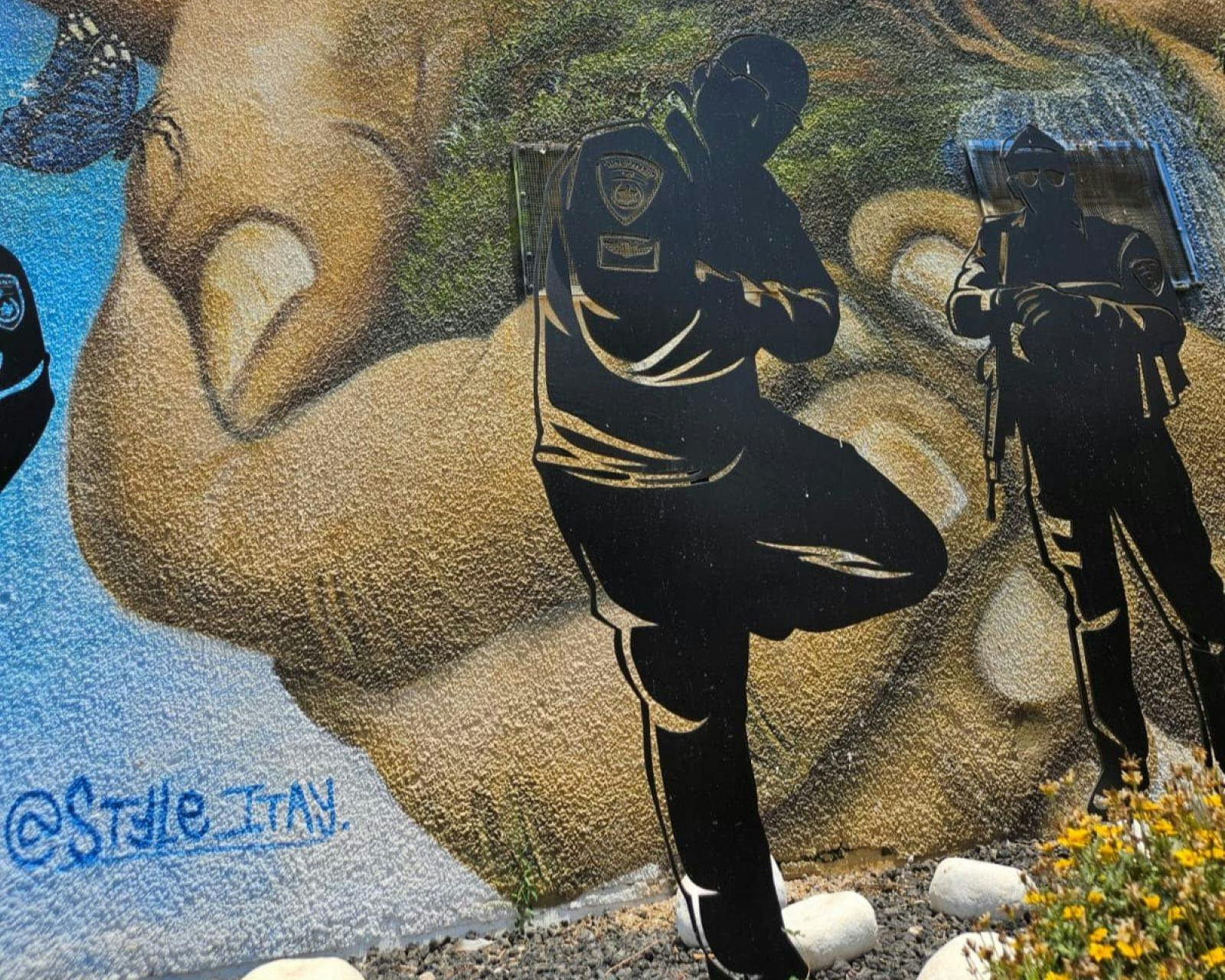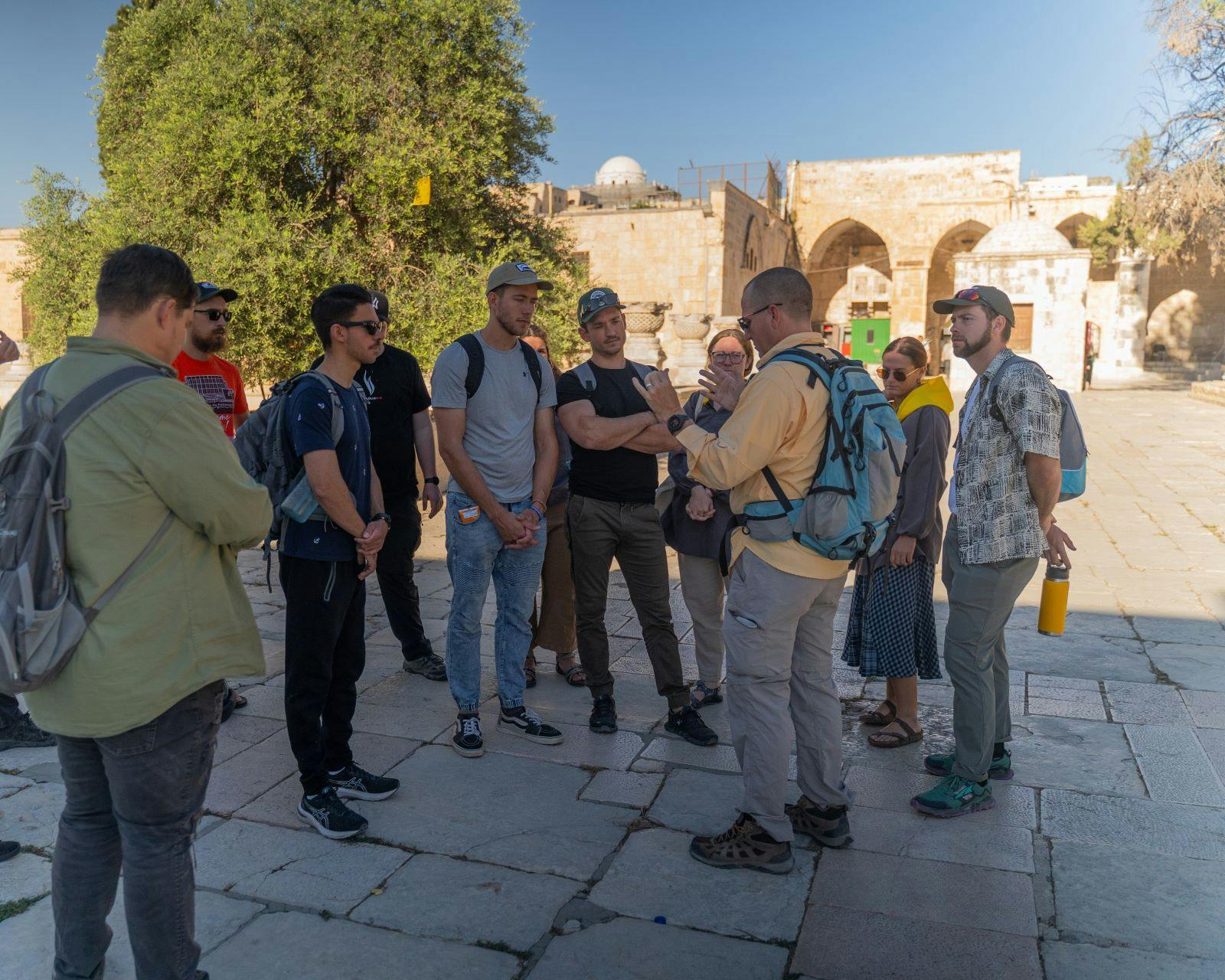Friday, May 9, 2025
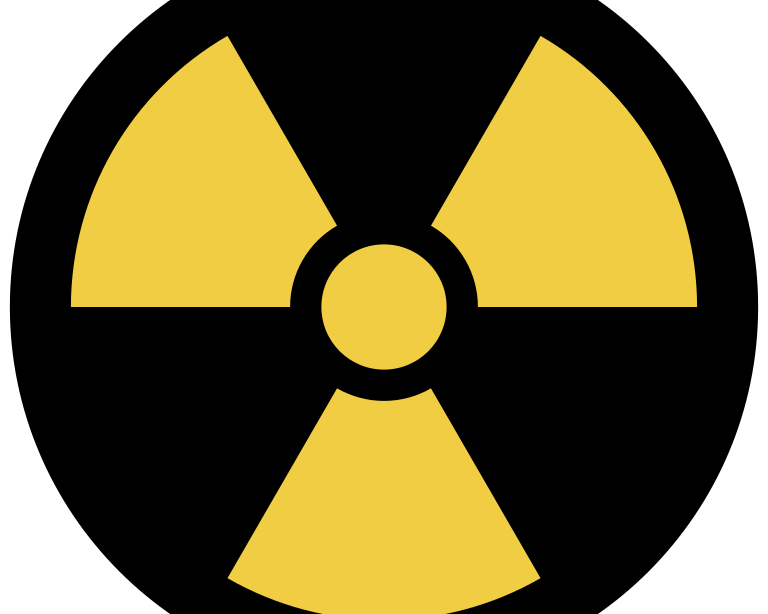
Every week, we post seven to ten news stories from Israel with a suggested prayer focus and scripture for each one, guiding readers how to pray for Israel’s most urgent needs. This Prayer Update is also sent to over 18,000 subscribers every Friday by e-mail. Sign up HERE if you would like to receive this Prayer Update by e-mail.
Iran's Nuclear Ambitions: A Catastrophic Threat to the Free World

By: Simon Fenn ~ Bridges For Peace
Thursday, 8 May 2025 | Envision a fanatical authoritarian regime, like Iran’s, a proven and persistent sponsor of global terrorism, steeped in extremist ideology, cloaked in apocalyptic rhetoric, gripping nuclear warheads, shouting “Death to America,” and “Death to Israel.” This is not dystopian fiction; it’s the precipice on which we stand if Iran’s overlords are allowed to develop nuclear weapons. The stakes could not be higher, and the free world—led by resolute voices in the United States and Israel—must act in concert to prevent this catastrophe.
The diplomatic process instigated by the Trump Administration appears fragile, with both the US and Iran publicly expressing cautious optimism, while reportedly facing deep divisions. The fourth round of indirect talks was originally scheduled for May 3, in Oman, but was postponed. The resumption of talks has not yet been confirmed despite reports they will begin again on Sunday, May 11. The outcome of the talks seems to hinge on one crucial aspect; whether the US will accept a deal allowing limited uranium enrichment—that Iran claims is for civilian purposes—under strict oversight or continue demanding complete cessation.
US Secretary of State Marco Rubio has pushed for Iran to cease uranium enrichment entirely. This stance conflicts with Iran’s position, that deems stopping nuclear enrichment non-negotiable. There are also indications of internal US disagreements, with some officials favoring a deal allowing limited enrichment under strict monitoring. US Vice President JD Vance said on Wednesday that Tehran can have civil nuclear power but not enrichment to the level required to have atomic weapons. The same day, US President Donald Trump stated “I would much prefer a strong, verified deal where we actually blow them up (centrifuges), or just de-nuke them. There are only two alternatives there, blow them up nicely or blow them up viciously.” The two separate comments on the same day highlights the lack of clarity regarding the US position.
If Iran was to realize its ambition to possess nuclear weapons, Israel would face its most existential crisis to date. Supreme Leader Ali Khamenei has vowed to annihilate the Jewish state. With enough enriched uranium for multiple bombs, Israel’s small size and concentrated population would make the nation intolerably vulnerable. Iran’s proxy attacks—via Hezbollah, Hamas, and the Houthis—would certainly escalate.
For the United States, a nuclear Iran is a threat of equal concern. Iran’s ballistic missiles, with ranges exceeding 2,000 km (1,243 miles), could target US bases like Al Udeid in Qatar or Camp Arifjan in Kuwait, where thousands of troops are stationed. Iran could disrupt Persian Gulf shipping by leveraging its nuclear threat to intimidate neighboring states and control key maritime routes through which much of global oil passes. Iran could deploy its navy or proxies like the Houthis to harass tankers, mine waterways, or stage attacks, as it has done in the past. Such actions would deter shipping, drive up costs and constrict oil supply, causing prices to surge. This would hammer the US economy with higher fuel costs, inflating prices for goods and services, while disrupting global markets that depend upon stable energy flows, particularly in Europe and Asia.
These are likely outcomes of an Iran that merely possesses a nuclear weapon. The Iranian government’s extensive record of terrorism, including plots against Western targets and a recent assassination attempt on President Trump, signals that Iran would readily wield its nuclear technology to orchestrate devastating attacks on US soil, American embassies, or against its allies in the West.
Europe, within missile range, could face nuclear blackmail. NATO allies hosting US forces would be put at great risk. In the Middle East, Saudi Arabia and the UAE, targeted by Iran’s proxies, could face severe threats. Arab nations that are parties to the Non-Proliferation Treaty (NPT) would be forced to drop out one by one, resulting in a Middle East arms race.
The Iranian people, oppressed by their leaders, are not the foe. The mullahs’ cruelty—killing dissenters, starving the population, and diverting billions to weapons—betrays their own citizens. A nuclear Iran would only serve to entrench the oppression of its people. The US must lead with unrelenting pressure—sanctions, military threats, and support for Iran’s dissidents. Israel must prepare for pre-emptive strikes, with or without US assistance, while allies like Europe and the Abraham Accords nations must unite against Tehran.
Iran’s regime, driven by apocalyptic, anti-West and anti-Israel ideology, is not rational. The US, Israel and the entire free world’s principles—liberty, security, prosperity—cannot coexist with such a dangerous threat from a regime that thrives on terror. Secretary of State Marco Rubio, meeting Israeli Prime Minister Benjamin Netanyahu in 2025, declared, “There can never be a nuclear Iran, period. It’s a threat to Israel, to America, and to the entire free world.” The world cannot afford complacency. Iran’s nuclear ambitions must be halted. An extremist tyrannical government wielding nuclear power in the Middle East is unthinkable.
(Bridges for Peace, May 8, 2025)
License: Wikimedia
Prayer Focus:
Intercede for this grave situation, praying for all parties involved in ongoing negotiations. Pray that any hidden Iranian plans to agree to curtail its nuclear program without corresponding action will be revealed and stopped. Pray for wisdom from God for Western nations whose freedoms are threatened.
Scripture:
With Him are wisdom and strength, He has counsel and understanding.
Job 12:13
Trump’s Ceasefire with Houthis Stuns Israel, Reshapes Red Sea Dynamics

By: Simon Fenn ~ Bridges for Peace
Wednesday, 7 May 2025 | In a stunning diplomatic pivot, US President Donald Trump announced on May 6 that the United Sates would immediately cease its nearly two-month bombing campaign against Yemen’s Houthi rebels, following an Oman-brokered ceasefire agreement. The deal, hailed by Trump as a Houthi “capitulation,” aims to secure vital Red Sea shipping routes that carry 1 trillion USD in annual trade. However, Trump did not indicate how or if the agreement would impact Houthi attacks against Israel, sparking alarm and raising questions in the nation.
President Trump made the surprise declaration from the Oval Office during a meeting with Canadian Prime Minister Mark Carney, stating that “They [the Houthis] said please don't bomb us anymore and we're not going to attack your ships. I’ll accept their word, and we are going to stop the bombing of the Houthis effective immediately." The agreement followed weeks of secret negotiations mediated by Oman’s Foreign Minister Badr Albusaidi and US Special Envoy Steve Witkoff. Oman’s foreign ministry confirmed the truce, saying, “Neither side will target the other, including American vessels, in the Red Sea and Bab al-Mandab Strait, ensuring freedom of navigation and the smooth flow of international commercial shipping.” Qatar and Kuwait issued statements welcoming the deal, expressing hope that it would stabilize global shipping routes.
The ceasefire marks a dramatic swing from President Trump’s aggressive March 2025 campaign, which saw the US conduct over 800 airstrikes on Houthi targets, costing more than 1 billion USD and killing hundreds. The agreement stipulates that both parties refrain from targeting each other, but the rapid pace of its negotiation has sparked skepticism about the ceasefire’s longevity.
Israel was caught off guard, learning of the agreement through public channels. Senior officials urgently sought clarification on whether the Houthis would cease their missile and drone attacks against Israel. A high-ranking source stated, “If their assaults stop, we will hold our fire.” Just hours before President Trump made the announcement, Israel, in coordination with US Central Command, launched a precision strike on Sanaa’s international airport, obliterating runways and several aircraft in response to a Houthi missile attack on Ben Gurion Airport, Tel Aviv. The Israeli raid rendered Yemen’s airport inoperable.
Prime Minister Benjamin Netanyahu swiftly convened his security cabinet to evaluate the ceasefire’s implications, particularly in terms of Houthi aggression toward Israel. National Security Minister Itamar Ben-Gvir, decried the US for “betraying” Israel, though Prime Minister Netanyahu was quick to call for restraint.
Houthi officials have explicitly stated that attacks on Israel will continue unabated despite the US ceasefire. Mahdi al-Mashat, head of the Houthi Supreme Political Council, declared the group would persist with strikes advising Israelis to “remain in shelters” as their government “cannot protect them.” Mohammed Ali al-Houthi, a senior official, tweeted that the US halt of “aggression” against Yemen would be evaluated, but attacks on Israel would continue. Since November 2023, the Iran-backed terror group has launched more than 350 ballistic missiles and drones targeting Israel, claiming their attacks are in solidarity with Gaza.
Oman facilitated the dialogue that resulted in the ceasefire agreement, reportedly eager to prove itself as a neutral mediator in the Gulf. With a history of brokering US-Iran nuclear talks and Yemen peace efforts, Oman maintains open channels with Washington, Tehran and Sanaa. Its shared border with Yemen and strong economic interest in Red Sea routes, drove its involvement. The talks emerged as a byproduct of ongoing US–Iran nuclear negotiations, but US State Department spokeswoman Tammy Bruce told reporters not to “conflate” the talks with Iran with the “good news” of the Houthi agreement. The administration is holding separate talks with Tehran about its nuclear program. A fourth round of discussions was postponed last week. The administration has not yet confirmed reports that the US–Iran talks will continue Sunday May 11.
(Bridges for Peace, May 8, 2025)
License: Wikimedia
Prayer Focus:
Pray that Israel’s leaders, especially Prime Minister Netanyahu and the Security Cabinet, will keep their eyes fixed on God as this abrupt action by the US, a trusted ally, came as a surprise. Pray that the Lord of Hosts will direct Israel’s battle against the Houthis, giving her the strategy to defeat this terrorist organization.
Scripture:
And Joshua went to Him and said to Him, “Are You for us or for our adversaries?” So He said, “No, but as Commander of the army of the LORD I have now come.” And Joshua fell on his face to the earth and worshiped, and said to Him, “What does my Lord say to His servant?”
Joshua 5:13b–14
Injured Syrian Druze Find Safe Haven in "Enemy" Israel

By: Ron Crissy ~ Ynetnews
Wednesday, 7 May 2025 | At least 32 wounded Druze were evacuated from conflict areas in Syria to Ziv Medical Center in Safed in less than a week.
"I was sure I wouldn’t survive. I waited for days with my injuries, without medicine or help," shared one of the patients on Tuesday. He arrived with shrapnel wounds to his limbs. "When I finally got to Ziv, they gave me water, treated me, and spoke to me like a human being." He expressed gratitude to the medical staff, adding, "You take care of me all the time—and you're saving lives."
Of the 32 evacuees brought to Ziv since April 30—including women, children and men—19 remain hospitalized under medical supervision. They are being treated in the orthopedic, neurosurgery, pediatric and high-risk maternity departments, where staff are working around the clock to provide professional, compassionate care.
Professor Aviram Nissan, head of the surgical division at Ziv, spoke about the patients' conditions and the complexity of their treatment, noting that the hospital received 30 wounded individuals and two women—one in a high-risk pregnancy and one in serious condition after giving birth.
"Some of the patients underwent surgery, others were treated with invasive procedures, and some will undergo surgery today, tomorrow and in the coming days," he said.
Currently, 19 patients remain hospitalized, one has been transferred to another facility, and Ziv remains on standby to receive additional casualties. "We have extensive experience from previous years treating wounded individuals from across the Syrian border during the civil war, and we are continuing that effort," Nissan said. "We will provide care to anyone who arrives at Ziv Medical Center."
Among the recent arrivals was a 37-year-old Druze man from a Syrian village at the heart of the fighting. He was moderately injured after jumping from a height of two stories—about 12 meters [39 ft]—while trying to escape danger. “I felt my life was in danger. I had to jump and fell into an elevator shaft,” said the injured businessman from Syria.
He described receiving care in Israel as "coming full circle," noting: “My grandfather grew up here, and I have family in the village of Rama. The excellent medical team and my family from Rama are surrounding me with love—I don’t have enough words to thank you.” He was admitted to the spinal surgery unit in Orthopedics B and has since undergone back surgery.
Over the weekend, the Israeli Air Force operated in the As-Suwayda region of Syria, securing the ground evacuation of wounded Druze and delivering supplies via aircraft to communities on Jabal al-Druze. Earlier in the week, there was also an aerial evacuation of Druze casualties from Syrian territory.
On Saturday, the IDF spokesperson reported strikes across Syria, targeting a military site, anti-aircraft artillery and surface-to-air missile infrastructure. The commanders of the Israeli Air Force and Northern Command were present in the air force operations center during the attacks.
“The IDF struck dozens of infrastructure elements and weapons systems across Syria using 12 fighter jets, including anti-aircraft guns and surface-to-air missile launchers,” the IDF statement said. “The IDF will continue to ensure aerial freedom of operation to carry out its missions and remove any threats in the region.”
A day earlier, Israel carried out a strike near the Syrian presidential palace as a warning to President Ahmad al-Sharaa following clashes with members of the Druze community. Damascus called the strike a "dangerous escalation."
(This article was originally published by Ynetnews on May 6, 2025. Time-related language has been modified to reflect our republication today. See original article at this link.)
https://www.ynetnews.com/article/hkim11qdglx
Prayer Focus:
Pray that the Lord will strengthen all the doctors, nurses and medical staff in Israel who willingly treat anyone in need of their lifesaving skills. Give thanks to the God of Abraham, Isaac and Jacob who called His people to “choose life” whenever they were given an opportunity. Millennia later, the Jewish people are still obeying this instruction.
Scripture:
I call heaven and earth as witnesses today against you, that I have set before you life and death, blessing and cursing; therefore choose life, that both you and your descendants may live.
Deuteronomy 30:19
Israel Set to Expand Gaza Offensive as IDF Calls up More Reserves
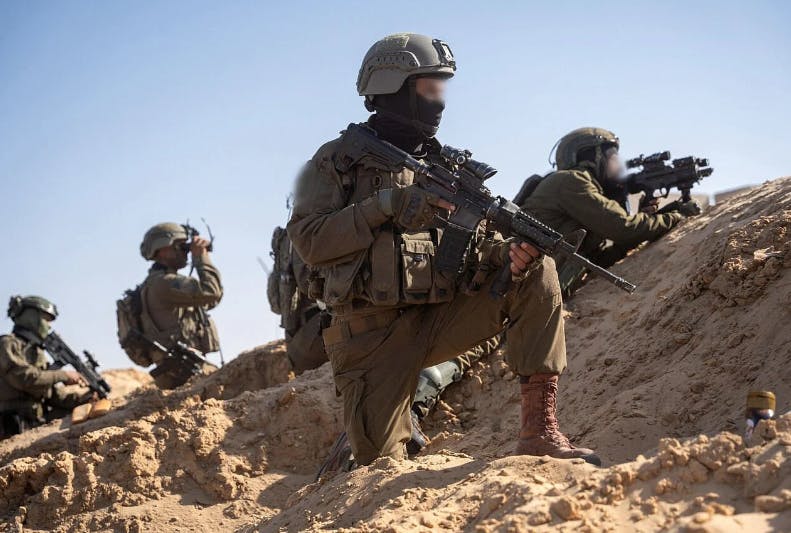
By: JNS
Monday, 5 May 2025 | The Israeli Security Cabinet was scheduled to meet yesterday to approve a significant expansion of the ground campaign in the Gaza Strip; the IDF has already begun mobilizing tens of thousands of reservists to reinforce combat units and support the next phase of the war.
The intensified military action aims to increase pressure on Hamas to free hostages and bring about the collapse of the terrorist group’s control in Gaza. Senior military officials say the two objectives are closely linked and will be pursued in tandem as part of a broader strategy.
Defense sources noted that the mobilization is one of the largest since the war began 19 months ago, with newly called-up reservists being integrated into training and operational deployments.
Over the weekend, IDF troops, operating in coordination with the Israel Security Agency (Shin Bet), carried out extensive operations across the Gaza Strip. In Gaza City, reservists from the Jerusalem Brigade, operating under the 252nd “Sinai” Division, continued to engage Hamas operatives in the Shejaiya neighborhood, dismantling underground infrastructure and seizing weapons caches.
The Israeli Air Force [IAF] attacked more than 100 terrorist targets throughout Gaza, including tunnel shafts, command centers and structures used by armed cells, the military said. Ground forces located and destroyed additional weapons and killed several terrorists.
In southern Gaza, IDF troops operating in Rafah and along the Morag Corridor dismantled dozens of terrorist sites and uncovered more weapons stores. These operations were conducted jointly with the IAF and are part of what Israeli officials describe as a gradual but escalating campaign to dismantle Hamas’s remaining operational capabilities.
Despite ongoing strikes, the IDF assesses that Hamas maintains at least two organized brigades and continues to pose a threat. However, Israeli officials have noted that recent military and humanitarian pressure is hurting the group’s ability to operate. Some Hamas fighters have surrendered, and the terrorist organization’s command and control systems have sustained significant damage.
The Cabinet was expected to review the next phase of the campaign, presented late last week to Prime Minister Benjamin Netanyahu. Military leadership has called the expanded operations essential for both military and diplomatic objectives, including increasing leverage in ongoing efforts to secure the release of hostages.
Separately, the IDF confirmed that it continues to carry out operations in Syria aimed at preventing the transfer of strategic weapons and protecting Israel’s northern border. In a recent humanitarian operation, injured members of the Druze community in Syria were evacuated to Israeli hospitals.
The IDF reiterated that it remains committed to its mission to defend Israeli civilians and to act decisively against terrorist threats in all sectors.
(This article was originally published by the Jewish News Syndicate on May 4, 2025. Time-related language has been modified to reflect our republication today. See original article at this link.)
https://www.jns.org/israel-set-to-expand-gaza-offensive-as-idf-calls-up-more-reserves/
Prayer Focus:
Pray that the expanded operations will accomplish the two goals—final downfall of Hamas terrorists and the release of the remaining hostages. Pray for the wives and children of the 60,000 reservists just called back into active duty, asking the Lord to strengthen and comfort them. Pray also for the Lord’s protection of each soldier on the battlefield.
Scripture:
Give us help from trouble, for the help of man is useless. Through God we will do valiantly, for it is He who shall tread down our enemies.
Psalm 108:12–13
Mission Accomplished: Jenin—Once the Heart of Terror—Now Quiet
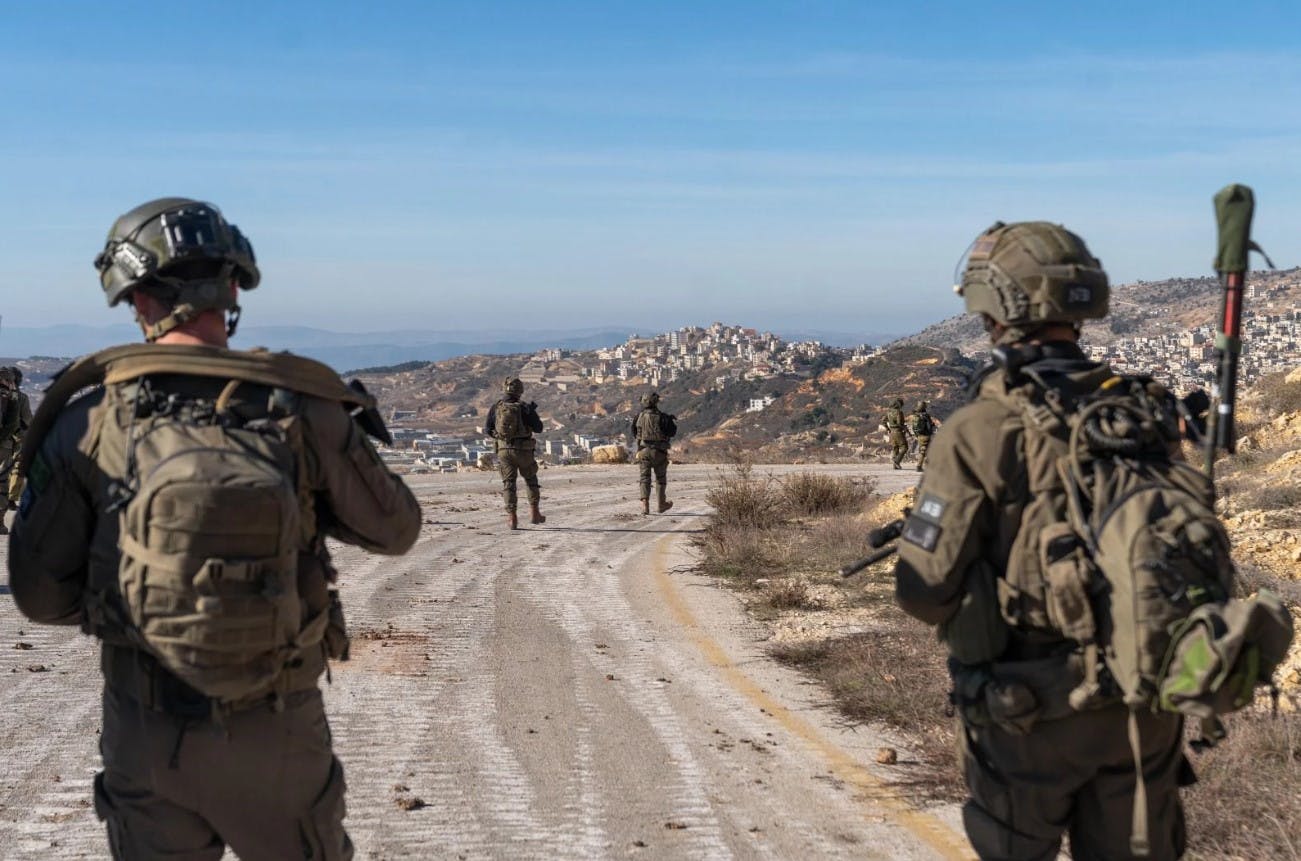
By Yoav Zitun ~ Ynetnews
Thursday, 8 May 2025 | The four tanks from the IDF's 188th Armored Brigade that entered Jenin with fanfare earlier this year—at the urging of political leaders—have recently been quietly withdrawn from the West Bank [Judea and Samaria] and redeployed to their more natural place: the ruined neighborhoods of Rafah in southern Gaza.
Soon, the active duty soldiers of the Nachshon Battalion will also leave the densely packed ghost neighborhood in the heart of what is often called the "terror capital" to take part in the expanded ground operation in Gaza recently approved by the Cabinet. Their last encounter with hostile forces in Jenin occurred four months ago, and since then not even riots have broken out. The quiet will now be handed over to reservists, many of whom are being called up for their fifth or sixth round of duty within a year and a half.
A low dirt mound separates the bustling streets of Jenin from the refugee camp neighborhood, technically part of the city itself. The camp is located in the northernmost tip of the West Bank, near Afula. Modern high-rises and shopping centers surround the camp, which sits at a lower elevation. Its narrow alleyways closely abut Jenin’s city streets on all sides.
Inside the city of Jenin, there's prosperity and normalcy: the malls and schools are open and, as Ynet reported about a month ago, the IDF has resumed allowing Israeli Arabs to spend millions of shekels there every weekend on shopping sprees. In the small, infamous bubble of the refugee camp, a few dozen IDF soldiers remain permanently stationed, supported by male and female Border Police officers from Unit 23.
These troops have effectively been living inside the camp for five months, although their actual operations now take place outside the city—focused on arrest raids in nearby villages, where, according to Central Command estimates, several dozen terrorists are still hiding, about 10 of whom are considered to have "blood on their hands."
Meanwhile, the soldiers feel at ease, surrounded by graffiti of Stars of David on building walls and newly bulldozed roads created through the demolition of around 200 structures. In shops around the neighborhood, dusty shelves still display electronics and food items. Many of the approximately 3,000 Palestinian residents who were displaced from the camp remain disappointed with the Palestinian Authority's proposed solutions, such as temporary housing on farmland.
Four months after the IDF seized control of two refugee camps in the West Bank, commanders estimate that only a few dozen fugitives from the Jenin camp remain on the run—eight of them considered high-value targets. Nachshon Battalion fighters from the Kfir Brigade are now in their final days in Jenin before being redeployed as regular infantry in Gaza. Contrary to earlier plans, they’ll be replaced by reservists. In recent months, the regular troops have alternated between routine security duties and "mini-maneuvers"—two-and-a-half-week stays inside seized Palestinian homes in the camp (dubbed "identifications"), followed by four-day breaks at home.
“The conditions here for the troops are good, the food is decent, and we’re already deep in preparations for the major operation planned in Gaza,” said the battalion’s commander, Lt. Col. G. The last armed encounter his forces faced in Jenin was four months ago, and since then, not even disturbances have occurred—despite dozens of soldiers effectively living in the hostile 1.5-square-kilometer [0.6 sq. mile] camp surrounded by the urban sprawl of Jenin.
As the IDF gears up for a wider offensive in Gaza and commanders count every reservist willing to answer a fifth or sixth emergency call-up in under two years, the army made an unusual move today: it invited journalists to the Jenin refugee camp without any specific reason.
According to commanders, the first two phases of Operation Iron Wall—achieving operational control of the camp and clearing its structures—were completed successfully two months ago. Since then, troops have focused on arrest raids and pursuing dozens of remaining militants who fled the camp to nearby villages. These fugitives are now without their home turf and far from the narrow alleyways where they once operated more than 100 surveillance cameras to track IDF patrols and time their roadside bombings with deadly precision.
“The camp is clear of hostile forces,” said one commander. “We demolished around 200 buildings not to destroy, but to eliminate enemy infrastructure—now and in the future—that could endanger our forces. It also allowed us to create roads for troop movement and casualty evacuation. After Operation Defensive Shield 23 years ago, the militants learned lessons and built barriers on those roads to prevent military vehicles from maneuvering.”
According to IDF figures, 102 terrorists have been killed so far in the current operation in northern Samaria; 320 have been arrested; and 14 airstrikes have been carried out, including by fighter jets. The operation has also led to a sharp drop in both threat alerts and actual attacks. A total of 338 weapons have been seized. The most recent Ramadan [one of the Five Pillars of Islam when stringent disciplines are observed], just a month ago, was reportedly one of the quietest in the West Bank in a decade. During Passover, 41,000 Israelis visited the Tomb of the Patriarchs in Hebron, and about half of all IDF counterterror operations (arrests and weapons seizures) in the West Bank now take place in the Hebron and Bethlehem areas.
Since the start of the operation, around 450 weapons have been seized, along with the destruction of hundreds of improvised explosive devices. Dozens of homes that served as weapons labs have been demolished. As part of the effort to open new roads for military access, approximately 100 buildings in Jenin and another 100 in Tulkarm and Nur Shams have been razed. Since the war began, about 930 militants have been killed in the West Bank, and some 2,050 weapons have been seized.
The IDF said: “To prevent terror from reestablishing itself in northern Samaria, the army is making changes to the camps, including opening roads to ensure freedom of movement and operational flexibility for our troops. As part of this plan, Central Command has announced its intention to demolish additional buildings. These demolitions are the result of thorough evaluations and are limited to the minimum necessary to guarantee security.”
Business as Usual in Jenin City
Inside the damaged and deserted refugee camp, the sense of security among the soldiers is palpable. They enter and exit the area in armored vehicles—sometimes even without protective netting—using the city’s main roads in broad daylight, without being pelted by stones. The army cites Israel’s “carrot and stick” strategy, led by political authorities and first reported by Ynet two months ago. Just last weekend, Israeli Arabs contributed NIS 17 million [USD 4.75 million] to Jenin’s economy thanks to the reopening of the Jalama crossing, allowing them to shop in the city formerly dubbed the “terror capital.”
“The malls in Jenin are packed, the stores are bustling, the schools are all open—and that’s not something to be taken for granted, considering there’s a permanent IDF force operating inside the city’s refugee camp,” said an IDF official. “We have solid coordination with the Palestinian security forces in the area. In their last major operation here a year ago, they couldn’t even advance past the second row of buildings due to heavy militant resistance. Six of their officers were killed. What they did in six weeks, we’ve done in 24 hours.”
Alongside the IDF troops, a full Border Police company—Unit 23—is permanently stationed in the city. These male and female officers, trained to a similar level as IDF border infantry, protect reporters visiting the camp. Their presence has long become routine. “We have the advantage of continuity, while IDF battalions rotate in and out frequently,” said one Border Police officer. “We carry out every type of mission, which helps bolster the IDF’s manpower.”
Maj. G., the operations officer for the Menashe Brigade, looked at graffiti sprayed by soldiers on the walls of deserted Palestinian homes. “We handle any unusual incidents, fix things if needed, and repaint. Everything we destroyed had a reason. I don’t know when—or if—the 3,000 Palestinians who lived here will return,” he said.
Half of Freed Prisoners Returning to Terror
Meanwhile, Central Command is also dealing with the 408 prisoners recently released to the West Bank as part of the latest hostage deal with Hamas. Early indications suggest that some are already trying to return to terrorism. Statistics are stark: 82% of those freed in the 2011 Gilad Shalit deal resumed terrorist activity, as have about 50% of those released in the first round of the 2023 hostage deal. From a security standpoint, the military prefers to have released prisoners in the West Bank rather than Gaza, as the IDF has full operational freedom to act in the West Bank at any time and in any location.
“They’re under tight surveillance, and we interrogated and warned them before their release,” said a senior IDF source. “Zakaria Zubeidi, for example—the militant most associated with Jenin—is now busy with political meetings in Ramallah. He doesn’t come here anymore. And he knows that if he returns to terrorism, it’ll be at his peril.” The commander of Central Command, Maj. Gen. Yaki Dolf stated: “Any terrorist who returns to terrorism has only himself to blame.” He explained that Operation Iron Wall is aimed at dismantling the terrorist system from its roots, starting with achieving operational control over key strongholds like Jenin. “We’re systematically pursuing the fugitives with intelligence and keeping track of every movement route. As a result, we now can operate anywhere, anytime—even in the heart of the refugee camps.”
The IDF estimates that the two battalions added to the northern West Bank for holding the camps may be withdrawn by year’s end, once operations are complete and all wanted fugitives have been arrested. Ultimately, this will be a political decision. Regardless, the four tanks deployed to the area at the beginning of the operation, under political pressure, have long since been removed and sent to Gaza, where they are relevant to combat, not just photo ops.
(This article was originally published by Ynetnews on May 8, 2025. See original article at this link.)
https://www.ynetnews.com/article/s11jasfegx#autoplay
License: Wikimedia
Prayer Focus:
Pray that the quiet of the last few months will continue, pray for an easy transition as the active duty unit leaves and are replaced by reservists. Pray that the infamous Jenin refugee camp, once a hotbed of terror activity, will become a symbol of peaceful coexistence between Arab and Israeli communities in Judea and Samaria.
Scripture:
Where there is no revelation, the people cast off restraint; but happy is he who keeps the law.
Proverbs 29:18
Yet Another Arab Voice for Israel

By: Bar Zaga ~ Ynetnews
Wednesday, 7 May 2025 | Arab-Israeli activist and former Israel Defense Forces soldier Yoseph Haddad said he believes a majority of Arab citizens in Israel want to be part of Israeli society and live in coexistence with Jewish citizens.
“I truly believe there is a majority of Arabs who want to be part of Israeli society,” Haddad said during a recent appearance on The Watercooler podcast. “Not everyone is like me, and I don’t think there are Jews who are as patriotic as I am in terms of being combat soldiers—but I know there’s a majority who want a shared life.”
Haddad, 39, is a Christian Arab from Nazareth who volunteered for the IDF and served in the elite Golani Brigade. He later founded the NGO “Together – Vouch for Each Other,” which works to bridge gaps between Arab and Jewish communities in Israel. He is recognized internationally for his pro-Israel advocacy and views on coexistence.
“I’m a citizen of this country—it’s mine just like it’s yours,” Haddad said. “You’re Jewish, I’m Arab—so what? Our enemies don’t differentiate between us.”
Haddad enlisted in November 2003, shortly after a Palestinian suicide bombing at the Maxim restaurant in Haifa killed 21 Israeli civilians—both Jews and Arabs. “That attack made my decision final. From that moment, if anyone asked me if I was sure I wanted to enlist, I said, ‘A million percent yes,’” he recalled.
The activist emphasized that while he is aware of tensions and divisions, focusing solely on negative aspects leads to a distorted view. “If we only look at the bad, we’ll always conclude this place is full of hate. But that’s not true. I know the reality. Most Jews and Arabs want to live together as part of Israeli society.”
Haddad said many Arabs who express pro-Israel views or identify openly as Israeli face accusations of betrayal. “Any Arab who says he’s Israeli is immediately labeled a Zionist and a traitor,” he said. “People come up to me and say, ‘Yoseph, say exactly what you’re saying. That’s what we think but are afraid to say out loud.’”
He said his family has supported him throughout, despite the challenges. His mother was once hospitalized after being assaulted due to his activism. “My father told me, ‘They’re attacking you because they can’t fight your message. Don’t let them stop you.’”
Haddad travels with security when needed, especially after violent protests erupted during his public appearances abroad. During a lecture in Oxford, England, he required seven bodyguards. “Outside, there were smoke grenades and chants of ‘Wanted: Dead or Alive.’ If I had been alone, I wouldn’t be here today,” he said.
He also criticized Arab-Israeli singer Lina Makhoul for listing a concert location as “Haifa, Palestine,” saying such statements contribute to false narratives about Israel. “If someone says Haifa is Palestine, and denies your existence, and you still prefer them over someone like me who loves this country—there’s a serious problem,” he said, addressing critics from both Jewish and Arab communities.
Haddad was seriously injured during the 2006 Lebanon War, when a Hezbollah-fired missile narrowly missed him. He lost part of his foot and was nearly killed. “The doctor told the rescue team: ‘If you arrive within an hour, he’ll live. If not—come collect the body,’” Haddad recalled. “I never lost consciousness.”
Haddad is engaged to American-born Israeli journalist and advocate Emily Schrader. The couple met through pro-Israel advocacy work and have delayed their wedding multiple times, including due to the October 7 Hamas attack that led to war in Gaza. “We’re like a married couple already, just without the paperwork,” he said.
Despite multiple offers to enter politics, Haddad said he has put those conversations on hold. “Since October 7, I decided not to meet with anyone. This isn’t the time. My focus is on Israeli advocacy, visiting the wounded, and raising awareness about the hostages.”
Asked whether he ever considered converting to Judaism, Haddad was clear: “No. I’m proud to be Arab and proud to be Israeli. These identities go together.”
(This article was originally published by Ynetnews on May 2, 2025. Time-related language has been modified to reflect our republication today. See original article at this link.)
https://www.ynetnews.com/magazine/article/hyt0ivzlxl?utm_source=taboola&utm_medium=referral&utm_content=internal
Photo License: Wikimedia
Prayer Focus:
Pray that Yoseph Haddad will continue to receive invitations to speak in places that will garner an international audience for his message of hope that Arabs and Jews can live together peacefully. Pray that he will be protected from any plans to bring harm to him or his family because of his outspoken support for the State of Israel.
Scripture:
And if it seems evil to you to serve the LORD, choose for yourselves this day whom you will serve, whether the gods which your fathers served that were on the other side of the River, or the gods of the Amorites, in whose land you dwell. But as for me and my house, we will serve the LORD.
Joshua 24:15
Antisemitic Incidents Quadrupled in Australia in 2024
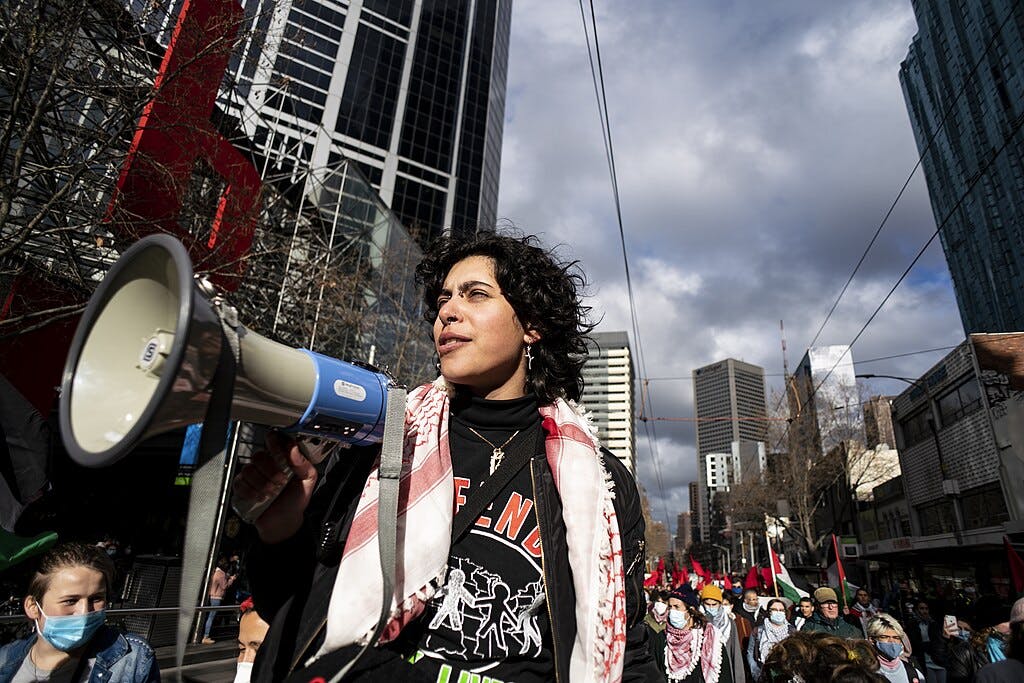
By: Caanan Lidor ~ JNS
Wednesday, 9 April 2025 | More than half of US adults, or 53%, have an unfavorable opinion of Israel, up from 42% in March 2022 – before the Hamas attack of October 7, 2023, and the ensuing Israeli invasion of the Gaza Strip, according to a Pew Research Center survey conducted March 24-30 looking at US President Donald Trump’s foreign policy and global trade actions.
The survey also found that Americans’ confidence in Israeli Prime Minister Benjamin Netanyahu also remains relatively low, at 32%.
US President Donald Trump has so far received mixed or negative views from Americans regarding his early foreign policy actions, including his involvement with Israel and in trying to end the war with Gaza.
Other foreign policy actions surveyed include Trump’s working more closely with Russia to end the war in Ukraine, withdrawing the US from international agreements, his statements about taking over Greenland and Gaza and tariffs imposed on US trade partners.
One example is that more Americans disapprove than approve of the US leaving international organizations and agreements including the World Health Organization, the Paris Climate Agreement and cancelling most US Agency for International Development (USAID) programs
Some 43% of Americans says Trump is favoring Russia too much in his negotiations to end the Russia-Ukraine war, but when asked about their opinion on whether Trump is striking the right balance when it comes to US relations with Israelis and Palestinians, opinions are more mixed.
Some 31% say they see him favoring the Israelis too much and 29% say he is striking the right balance. Another 3% say he is favoring the Palestinians too much. This leaves 37% who say that they are unsure.
For comparison, in July, views of how US President Joe Biden was handling the conflict were more even with 21% saying he favored Israelis too much and 20 % saying he favored Palestinians too much, with another 18% saying he was striking the right balance and 40% unsure.
Meanwhile, most Americans do not think it’s likely Trump will pursue a takeover of Gaza.
Some 38% say it’s either not too or not at all likely, 26% say it’s somewhat likely, and 20% say it’s extremely or very likely. Another 16% are unsure.
Some 62% of Americans oppose the US taking over Gaza, including 49% who strongly oppose it. Another 22% are unsure, while 15% favor it.
From the perspective of politics, Republicans are somewhat more likely than Democrats to say it is unlikely that Trump will try to take over Gaza, with Republicans at 43% and Democrats at 34%.
Republicans are also more likely than Democrats to be in favor of a US takeover of Gaza at 27% to 5%, though a plurality of people in both parties oppose it. Some 44% of Republicans oppose the US taking over Gaza, while another 28% are unsure. Democrats are fairly united in their opposition, with 80% saying they oppose the measure, including 72% who strongly oppose it.
On Monday, speaking to reporters before a meeting with Israeli Prime Minister Benjamin Netanyahu, Trump described the Gaza Strip as “a tremendous piece of real estate” and said the US still plans to take control of the territory. “It’s a great place. I don’t understand why Israel gave it up,” he said in remarks from the White House.
The survey was conducted from March 24 to March 30. A total of 3,605 panelists responded out of 4,045 who were sampled, for a survey-level response rate of 89%. The margin of sampling error for the full sample of 3,605 respondents is plus or minus 1.9 percentage points.
The survey includes oversample of Jewish, Muslim and non-Hispanic Asian adults in order to provide more precise estimates of the opinions and experiences of these smaller demographic subgroups. These oversampled groups are weighted back to reflect their correct proportions in the population.
(This article was originally published by the Jewish News Syndicate on May 8, 2025. See original article at this link.)
https://www.jns.org/antisemitic-incidents-quadrupled-in-australia-in-2024/
License: Wikimedia
Prayer Focus:
Bring this alarming trend of increasing global antisemitism before the Lord in prayer, asking if there are any specific steps you can take in your own sphere of influence to stand with the Jewish people. Give thanks for those governments who have initiated measures to identify and curb antisemitism, especially on college campuses. Pray that Jewish citizens of the Diaspora (outside Israel) will make the decision to make aliyah (immigrate) to Israel before it is too late.
Scripture:
…the LORD has chosen you to be a people for Himself, a special treasure above all the peoples who are on the face of the earth.
Deuteronomy 14:2
Fresh Flames of War: Israel Battles Largest Fires in its Modern History
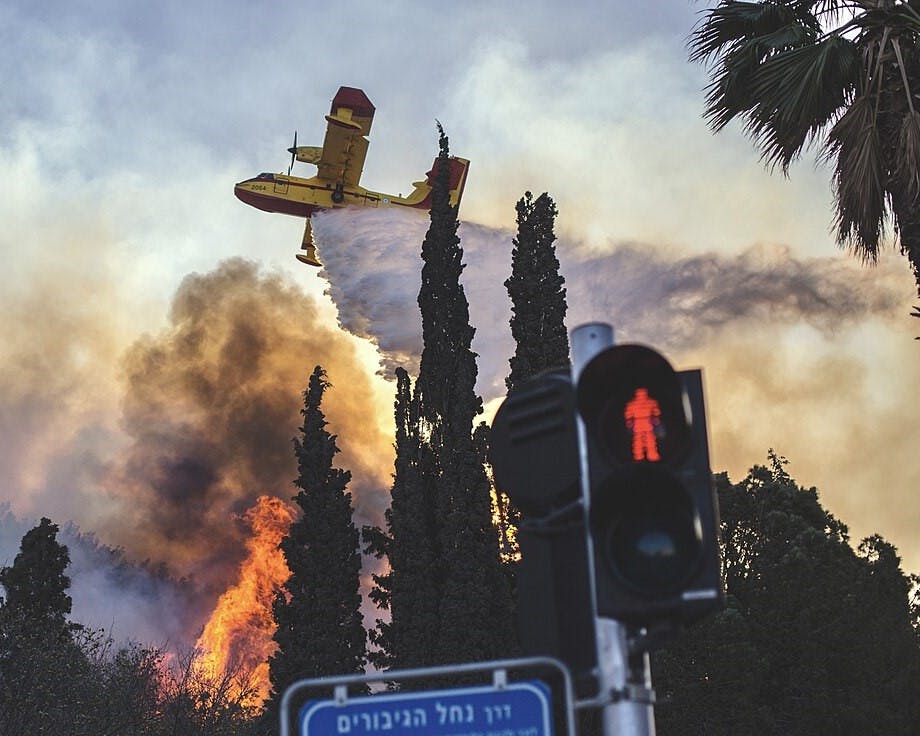
By: Robyn Hill ~ Bridges for Peace
What should have been a day of celebration for Israel’s Independence Day on Thursday morning, was overshadowed by distressing news of wildfires across the country. Reported to be among the largest in Israel’s history, firefighters and emergency teams rushed to fight the flames that broke out on Wednesday morning. The intense heat and fierce winds initiated immediate evacuations, road closures and the cancellation of celebrations across the country, including the official Independence Day torch-lighting ceremony.
Around 10 communities were evacuated from Neve Shalom, Beko’a, Ta’oz, and Nachshon and more, along with the military memorial in Latrun as reported by the Times of Israel. According to the Fire and Rescue Service, 163 firefighting teams were on the ground and 12 firefighting planes were dispatched by Wednesday evening to combat the out-of-control forest fires. Firefighter planes from Greece, Cyprus, Croatia and Italy were sent to help tackle the blaze alongside Israel’s emergency services.
After an intense 20 hours, firefighters began to gain control over the fast-spreading flames by Thursday evening. While dozens of Israeli residents were hurt, none are in serious condition. Miraculously, only a number of firefighters were lightly injured, with two hospitalized for smoke inhalation.
The fires have wrecked devastation across the hills surrounding Jerusalem, with 5,000 acres of land scorched, including 3,000 acres of forest.
Police are said to have three suspects under custody for arson. Initial media reports say they were arrested within several hours of the fires. A police statement on Thursday afternoon revealed that two of the three detainees were residents of East Jerusalem. The first is a 19-year-old detained Thursday for taking to social media to share his wish that God should fan the flames as revenge for Israel’s “destruction of Muslim lands.” The second is a 50-year-old detained on Wednesday for allegedly lighting a fire in an open field in south Jerusalem. It remains unclear what the third detainee was accused of.
When the news of the fire first broke and the skies of Jerusalem became dark with smoke, many of us at Bridges of Peace lifted up prayers for rain alongside the people of Israel. We all breathed a sigh of relief when our prayers were answered with rain showers around Wednesday evening in several locations, including the western Negev. While the rain was certainly an encouraging blessing, it was sadly not widespread enough to reduce the overall risk of the fires.
An unusually dry winter coupled with extremely high temperatures, strong winds and low humidity have all created the perfect storm, meteorologist Oren Davidov of the Meteorological Service told the Jerusalem Post. Firefighters remain in close contact with the Meteorological Service in a bid to contain the crisis and ensure no further outbreaks.
While investigations are still ongoing to determine the cause, authorities believe the devastating fires were the result of terrorist arson attacks. Before the flames, Israel was already facing a tremendous crisis fighting the longest war in its modern history. To make matters worse, social media has been flooded with Palestinians calling on their brethren to ignite even more bushfires around Israel. Hamas, the terror organization ruling the Gaza Strip, broadcast an official clarion call to Palestinians in Israel to burn the country to the ground.
Prime Minister Benjamin Netanyahu unmasked the evil behind this call. “Our neighbors, who claim they love this land, talk about burning the land.”
Netanyahu’s claim certainly holds true and reveals a glaring issue in the Palestinian narrative. The Palestinians repeatedly cry out that the land belongs to them, yet if you love the land, why burn it?
Bridges for Peace has responded to the fire crisis by partnering with our friends at the Shalva National Center to assist Israelis with special needs being evacuated from their communities. These precious Israelis feel the trauma of displacement keenly and need all the help they can get.
More than ever, we call on Christians from around the world to show their support for Israel during this time of double crisis. Let’s show our Jewish brothers and sisters that we are people of prayer, support and action. Your donation to our Crisis Fund will serve as a tangible blessing demonstrating to Israelis that they are indeed not alone.
(Bridges for Peace, May 2, 2025)
Photo License: Wikimedia
Prayer Focus:
Give thanks that the Lord watches over Israel and there was no loss of life as a result of the recent wildfires. Give thanks also for the willingness of Cyprus, Greece, Croatia and Italy to send firefighter planes to assist Israel in battling the inferno. Pray that all further plans by terrorists to set fires will be exposed and those planning such acts punished appropriately. Pray for a change in the weather pattern from hot and windy to gentle soaking latter day rains.
Scripture:
Behold, He who keeps Israel shall neither slumber nor sleep.
Psalm 121:4
Israel’s Population Tops 10 Million ahead of 77th Independence Day

By: JNS
Friday, 2 May 2025 | As Israel geared up to celebrate its 77th Independence Day, data released by the country’s Central Bureau of Statistics on Monday revealed that the country’s population has reached 10.094 million. This marks a growth of 135,000 people (1.4%) since last year’s holiday.
Of the total population, 7.73 million (77.6%) are Jews or classified as “others,” including non-Arab Christians and individuals without religious classification. Arab citizens account for 2.11 million (20.9%), while foreign workers make up 248,000 (2.5%). In the past year, some 174,000 babies were born, 28,000 new immigrants arrived, and 50,000 people died. The number of Israelis living abroad resulted in a net negative immigration balance of 56,000.
Since the state’s founding in 1948, when the population stood at 806,000, Israel has grown more than twelvefold. More than 3.5 million immigrants have arrived, nearly half of them since 1990. Around 45% of the global Jewish population now resides in Israel, with about 80% of Israeli Jews having been born in the country.
Looking ahead, Israel’s population is projected to reach 15.2 million by its 100th Independence Day in 2048.
The nation remains demographically young, with 27% of residents under age 14 and 13% aged 65 and older.
(This article was originally published by the Jewish News Syndicate on May 1, 2025. Time-related language has been modified to reflect our republication today. See original article at this link.)
https://www.jns.org/israels-population-tops-10-million-ahead-of-77th-independence-day/
Prayer Focus:
Give thanks for the faithfulness of our covenant-keeping God! As the Jewish people are returning to the Land, they are being fruitful and multiplying. Give thanks that Israel is filled nursing mothers and the sounds of children playing in her streets.
Scripture:
Then He brought him outside and said, “Look now toward heaven, and count the stars if you are able to number them.” And He said to him, “So shall your descendants be.”
Genesis 15:5
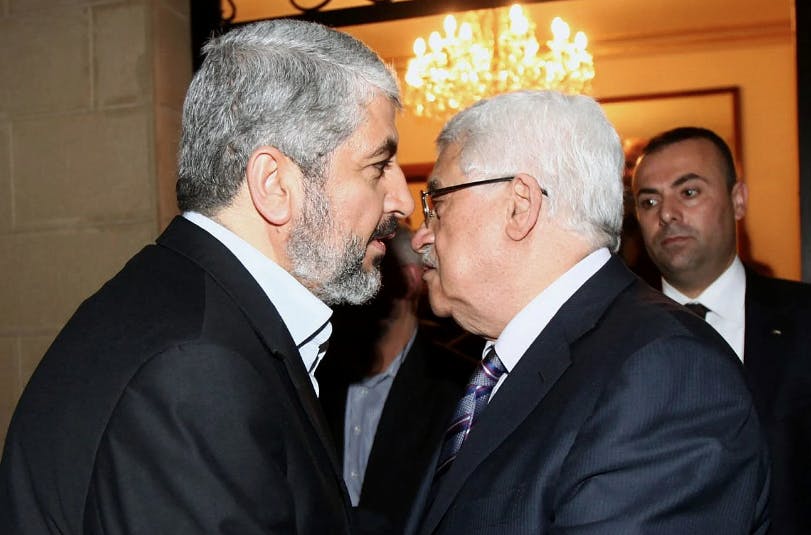
By: Akiva van Koningsveld ~ JNS
Monday, 5 May 2025 | “Gangs” affiliated with the Hamas terrorist group have been looting humanitarian aid meant for civilians in the Gaza Strip, Palestinian Authority [PA] leader Mahmoud Abbas said over the weekend.
Abbas condemned the “looting and theft carried out by criminal gangs targeting warehouses and storage facilities of humanitarian aid,” speaking in an official statement published by the PA’s Wafa news site on Friday.
According to the PA, which controls most of the Palestinians in Judea and Samaria but was violently ousted from Gaza by Hamas in a June 2007 coup, “Hamas-affiliated gangs” have been “primarily responsible” for the theft.
Abbas said Palestinians would “not forgive these disgraceful acts committed in such a critical time,” referring to the Israel Defense Forces’ ongoing war against Hamas terrorists in the coastal enclave.
He warned that the gangs were “well known to the Palestinian public” and would “top the blacklist to be held accountable and brought to justice in accordance with the law at the appropriate time.”
Hamas has looted at least 60% of the aid that Israel allowed to enter Gaza, the Israel Security Agency (Shin Bet) revealed last year. On March 2, Jerusalem halted the aid supply following Hamas’s rejection of another US-backed truce-for-hostages proposal.
Egypt- and China-brokered reconciliation talks between Abbas’s ruling Fatah faction and Hamas have apparently broken down since the latter terrorist organization announced the signing of an agreement in July.
PA sources previously told Sky News Arabia that Hamas had approved a three-phase plan leading to “complete reconciliation” and the Gaza-based terrorist group joining the PLO [Palestine Liberation Organization] terrorist organization, which controls the PA, under a “unified Palestinian–Arab vision.”
Hamas reportedly gave its blessing to Abbas’s proposal to establish a government whose purpose would be the reconstruction of the Gaza Strip after the war prompted by its October 7, 2023, terrorist massacre.
However, on April 23, Abbas called on Hamas to “end its control over Gaza, hand over all its affairs to the PLO and the legitimate Palestinian National Authority, refrain from carrying arms, transform into a political party that operates according to the laws of the Palestinian state and adheres to international legitimacy.
“The first priority is to stop the war of extermination in the Gaza Strip,” declared the octogenarian PA chairman. Abbas added, “This must be stopped—hundreds are being killed every day. Why don’t you hand over the American hostages? Sons of dogs, release those you are holding and put an end to this story. Shut down their [Israel’s] excuses. End this!”
It was not clear whether Abbas, who has yet to publicly condemn October 7, called for the release of all 59 remaining captives, or only Americans.
Members of the Al-Aqsa Martyrs Brigades, a “military” arm of Abbas’s Fatah movement, participated in the October 7 attacks, and the PA has financially rewarded October 7 terrorists through its “pay-for-slay” fund.
(This article was originally published by the Jewish News Syndicate on May 4, 2025. Time-related language has been modified to reflect our republication today. See original article at this link.)
https://www.jns.org/abbas-confirms-hamas-gangs-stealing-gaza-aid/
Prayer Focus:
Pray that the humanitarian aid sitting in the warehouses of Gaza will be distributed to those who truly need it rather than stolen by Hamas and sold at exorbitant prices to fund their regime of terror. Pray that the truth of this situation would be made known to those who blame Israel for the problems in delivering food and water.
Scripture:
In the dark they break into houses which they marked for themselves in the daytime; they do not know the light.
Job 24:16
Related Resources

Discover Your Purpose and God’s Heart For You
In today's divided, turbulent world, it's essential for the Church to rediscover God's heart. Our free e-book, authored by a seasoned expert with three decades of experience in Israel, delves deep into the teachings of Jesus (Yeshua) to reveal God’s principles of love and purpose. Learn how embracing these truths can bring significance and impact to your life, even amidst chaos. Subscribe now to receive your free copy and embark on a journey of transformation.

